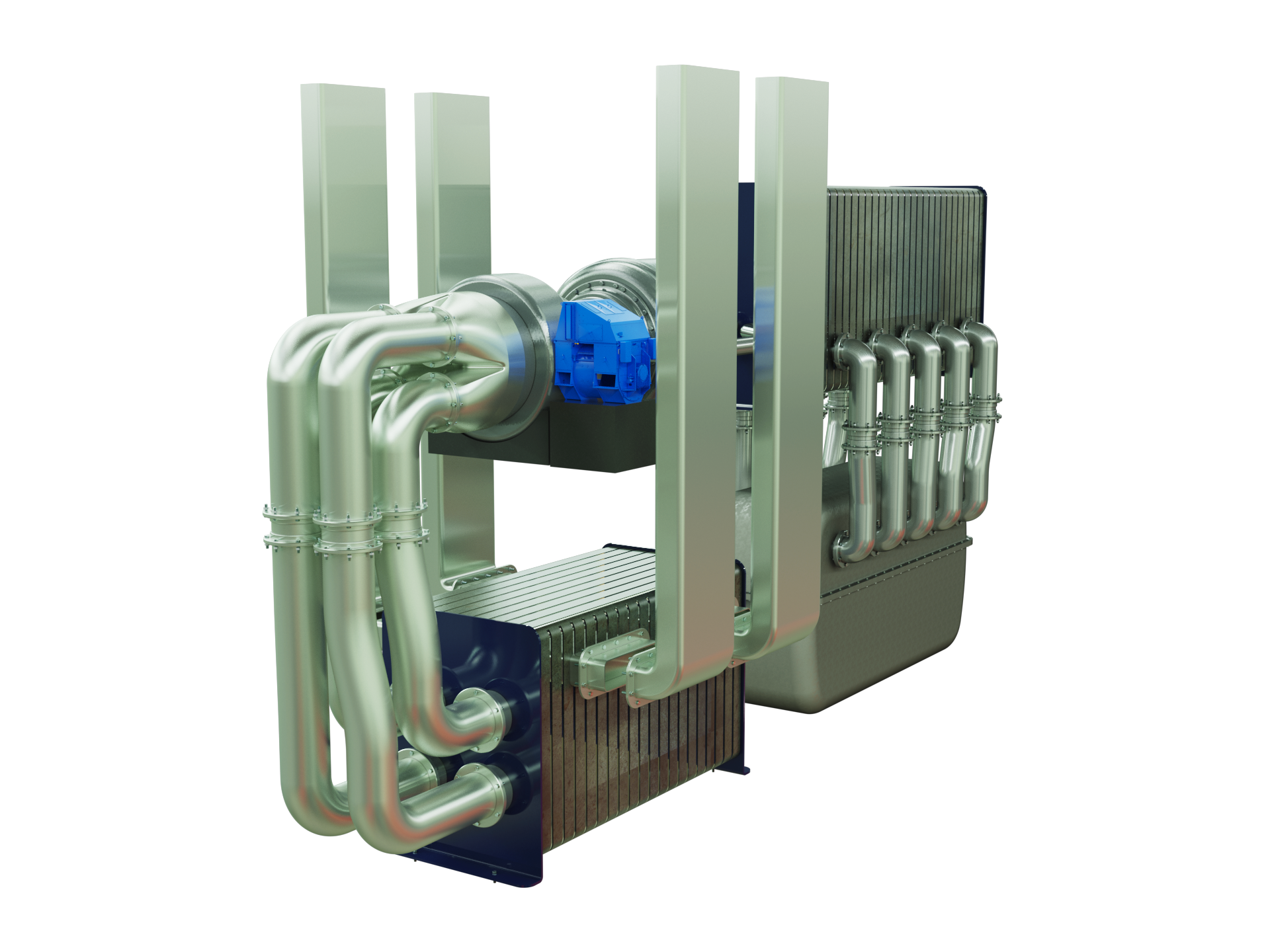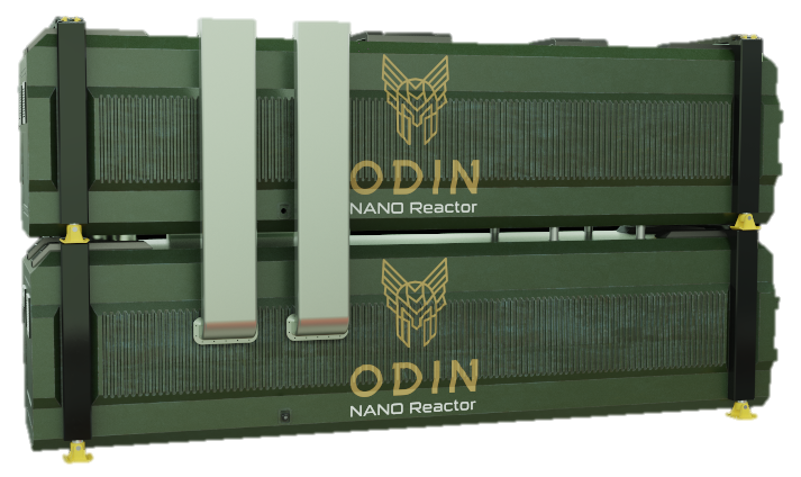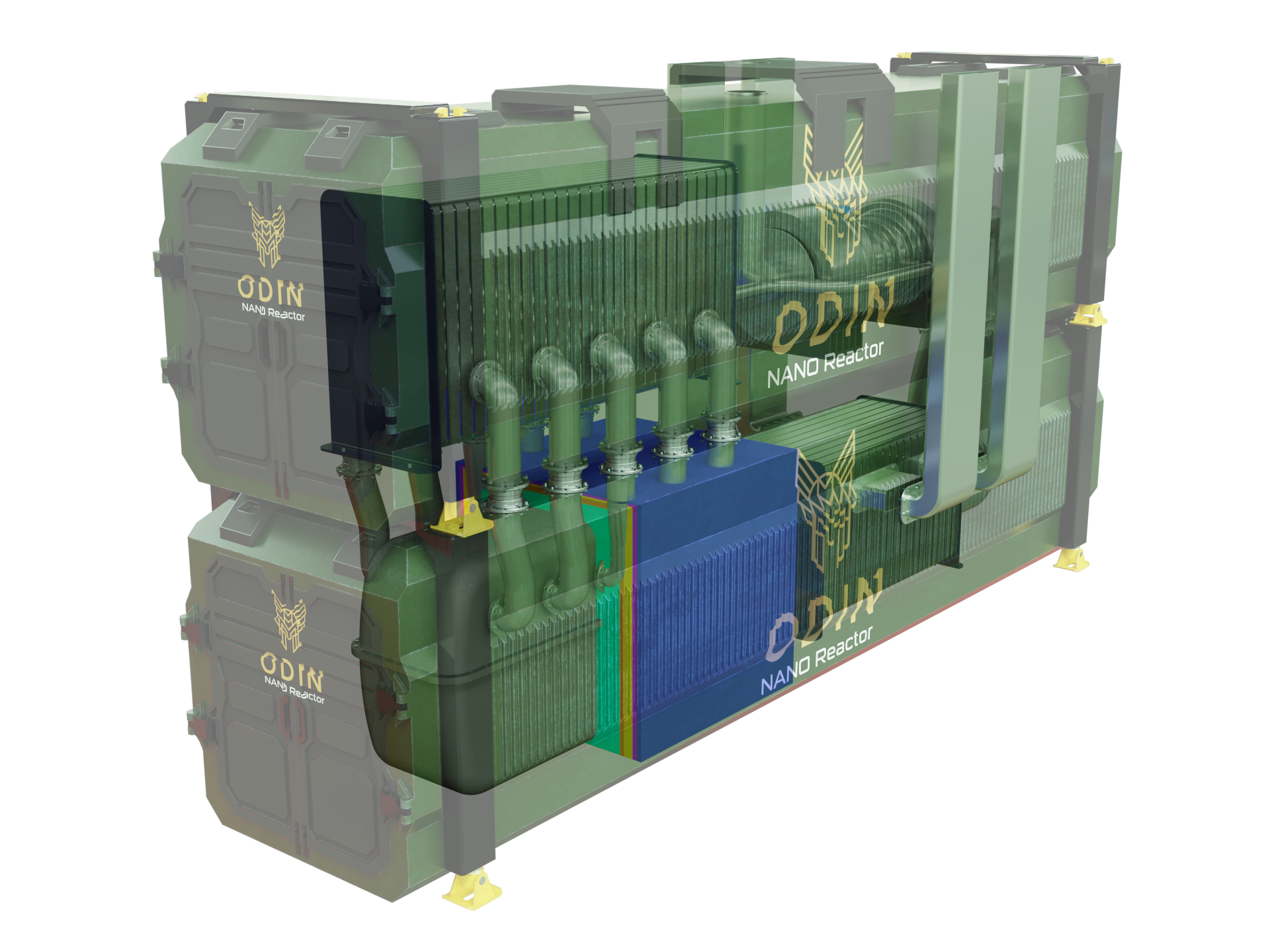Introducing ODIN – A Low Pressure Coolant Reactor

Our Proprietary Design of ‘ODIN’ Advanced Portable Microreactor
The second Advanced Nuclear Reactor (ANR) design in development at NANO Nuclear, “ODIN” aims to diversify its technology portfolio, as the design requirements can be met through different technological solutions. The “ODIN” design will utilize conventional fuel form with up to 20% enrichment, helping to minimize the required development and testing program schedule and costs. The proprietary reactor design “ODIN” will utilize low pressure coolant to minimize the stress on structural components, improve their reliability and service life. It will also use a unique reactivity control system design, aiming to have high reliability and robustness through minimizing the number of moving parts.
The reactor will operate at higher than conventional water-cooled reactor temperatures, which will allow resilient operation and high-power conversion efficiency in generating electricity. The “ODIN” design will aim to take maximum advantage of natural convection of coolant for heat transfer to the power conversion cycle at full power and for decay heat removal during reactor shutdown, operational transients, and off-normal conditions.
Professors Ian Farnan and Eugene Shwageraus will be directing a nuclear technical team and provide expert analysis on numerous facets of the design, including materials, dimensions, composition, operability, ease of manufacture, and efficiency. Among their remits will be developing a safety case strategy, biological shielding requirements, and fuel cycle strategy, from fuel manufacturing to defueling and decommissioning.
Chair of Cambridge Nuclear Energy Centre and Professor of Earth & Nuclear Materials, Ian Farnan is an expert in the effect of nuclear radiation on materials from nuclear fuels and claddings to waste forms. From 2007 to 2015, Prof. Farnan served as a member of the scientific advisory committee of the EMSL Directorate of Pacific Northwest National Laboratory in the United States. He has led national (UK EPSRC) and international (Euratom) research consortia, including the RCUK/NDA spent fuel research group and more recently within the EPSRC advanced materials for fission program, the consortium Carbides for Future Fission Environments. Prof. Farnan currently serves as Discipline Lead for Materials Science with the UK NDA’s Nuclear Waste Services Research Support Office. He has extensive experience with high temperature materials and is currently involved in supporting the development of molten salt technology through fundamental research on in-situ measurements of dissolution and speciation in molten salts.
A professor of Nuclear Energy Systems Engineering and Nuclear Energy Masters Course Director at the University of Cambridge Engineering Department, Eugene Shwageraus was the Head of the Nuclear Engineering Department at Ben-Gurion University, Israel and Visiting Associate Professor at the Nuclear Science and Engineering Department at MIT. Prof. Shwageraus has led multiple government and industry-sponsored research projects on developing advanced reactor designs. He is a co-PI on a £7M UK EPSRC sponsored program grant MATHRAD which will apply the latest mathematical methods to radiation transport modelling in the nuclear industry, space and medicine.
Prof. Shwageraus’ research is focused on the physics and engineering of nuclear power reactors as well as modelling nuclear energy systems to assist policy decision making. Furthermore, a part of Prof. Shwageraus’ research is dedicated to studying Thorium-based fuel in combination with advanced cladding material such as SiC which may be capable of achieving ultra-high burnup (long fuel cycles at high power densities) while at the same time providing higher safety margin.


ODIN is being developed by leading world experts –

Ian Farnan, Ph.D.
Lead of Nuclear Fuel Cycle, Radiation and Materials

Eugene Shwageraus, Ph.D.
Lead of Nuclear Reactor Engineering

